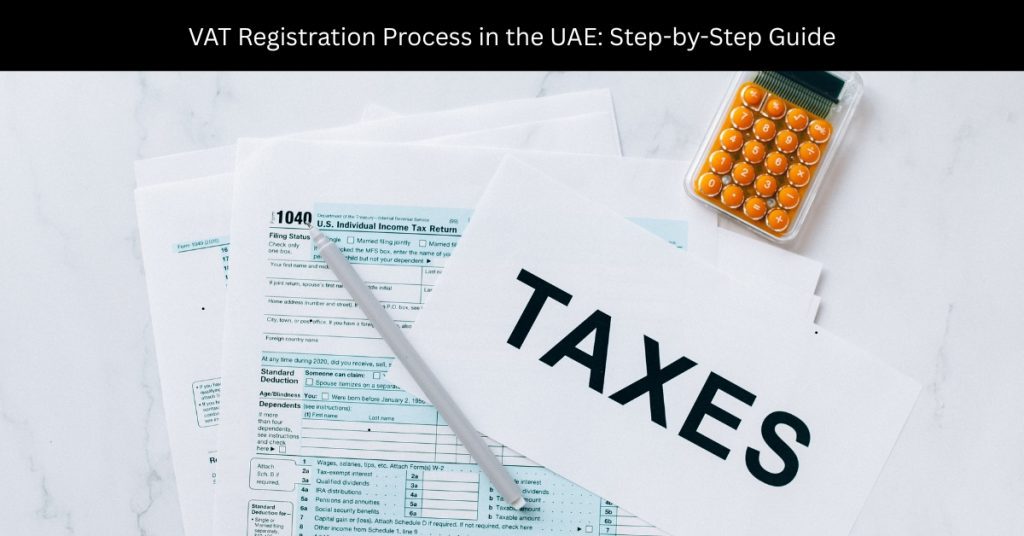VAT Invoice Requirements for Dubai Businesses
📋 Table of Contents
- Introduction to VAT Invoice Requirements
- Mandatory VAT Invoice Fields
- Types of VAT Invoices in UAE
- Format and Design Requirements
- Digital Invoicing and E-Invoice Standards
- Penalties for Non-Compliance
- Best Practices for VAT Invoice Management
- Common Mistakes to Avoid
- Frequently Asked Questions
- Conclusion
🎯 Introduction to VAT Invoice Requirements
Value Added Tax (VAT) implementation in the United Arab Emirates has transformed the way businesses operate, particularly in Dubai's dynamic commercial landscape. Since its introduction in 2018, VAT compliance has become a critical aspect of business operations, with invoice requirements serving as the cornerstone of proper tax documentation.
Dubai businesses must adhere to strict VAT invoice requirements as mandated by the Federal Tax Authority (FTA). These requirements ensure transparency, facilitate proper tax collection, and maintain compliance with UAE's tax regulations. Failure to meet these standards can result in significant penalties and operational disruptions.
Understanding and implementing correct VAT invoice procedures is not just about compliance—it's about building a sustainable business foundation that supports growth and maintains regulatory standing in the UAE's competitive market. This comprehensive guide covers all aspects of VAT invoice requirements specifically tailored for Dubai businesses operating in 2025.
🚀 Need Expert VAT Compliance Support?
Our certified tax consultants help Dubai businesses maintain perfect VAT compliance. Get professional guidance tailored to your specific business needs.
📝 Mandatory VAT Invoice Fields
Every VAT invoice issued by Dubai businesses must contain specific mandatory fields as prescribed by the Federal Tax Authority. These fields ensure proper documentation and facilitate accurate tax reporting.
Essential VAT Invoice Elements
| Field | Description | Format Requirements | Compliance Level |
|---|---|---|---|
| Business Details | Supplier's name, address, and TRN | Full legal name, complete address | Mandatory |
| Customer Information | Customer name and address | As per business registration | Mandatory |
| Invoice Number | Sequential numbering system | Unique, sequential format | Mandatory |
| Tax Point Date | Date of supply or invoice date | DD/MM/YYYY format | Mandatory |
| Goods/Services Description | Clear description of items/services | Detailed, specific descriptions | Mandatory |
| Quantity and Unit Price | Quantity supplied and price per unit | Numerical values with currency | Mandatory |
| Total Amount | Total value before VAT | AED currency format | Mandatory |
| VAT Rate Applied | Applicable VAT percentage | 5%, 0%, or exempt status | Mandatory |
| VAT Amount | Total VAT charged | Calculated amount in AED | Mandatory |
| Grand Total | Total including VAT | Final payable amount | Mandatory |
🔍 Key Compliance Point
Tax Registration Number (TRN): Every VAT-registered business must display their 15-digit TRN prominently on all invoices. This number must match exactly with the FTA registration records.
🗂️ Types of VAT Invoices in UAE
Dubai businesses must understand the different types of VAT invoices and when to use each type. The choice depends on the nature of the transaction, customer type, and invoice value.
VAT Invoice Types Comparison
| Invoice Type | When to Use | Mandatory Fields | Value Threshold |
|---|---|---|---|
| Tax Invoice | Standard B2B transactions | All mandatory fields required | No minimum threshold |
| Simplified Tax Invoice | Retail sales, B2C transactions | Reduced field requirements | Up to AED 1,000 |
| Credit Note | Returns, adjustments, discounts | Reference to original invoice | Any value |
| Debit Note | Additional charges, corrections | Reference to original invoice | Any value |
📋 Simplified Tax Invoice Requirements
For transactions up to AED 1,000, Dubai businesses can issue simplified tax invoices with reduced requirements. These are particularly useful for retail operations and small-value B2C transactions.
- Supplier name and TRN
- Invoice date and sequential number
- Description of goods or services
- Total amount payable including VAT
- VAT amount or VAT rate applied
🎨 Format and Design Requirements
While the UAE does not mandate a specific invoice template, certain format requirements must be followed to ensure compliance and professional presentation.
📐 Layout and Structure Guidelines
Language Requirements: Invoices must be in Arabic or English, with Arabic being preferred for official purposes. Bilingual invoices are acceptable and often recommended for Dubai's diverse business environment.
Invoice Design Standards
| Element | Requirement | Best Practice |
|---|---|---|
| Font Size | Legible and clear | Minimum 10pt for body text |
| Currency | AED (primary) | Show exchange rate if dual currency |
| Date Format | DD/MM/YYYY | Consistent throughout document |
| Number Format | Clear decimal notation | 2 decimal places for currency |
| Document Quality | Permanent, non-erasable | High-quality paper/digital format |
🔢 Sequential Numbering System
Invoice numbering is critical for VAT compliance. Dubai businesses must maintain a sequential numbering system without gaps or duplications.
⚠️ Important: Invoice numbers must be unique and sequential. Gaps in numbering require explanation to FTA auditors. Consider using alphanumeric prefixes to categorize different invoice types (e.g., INV-2025-001, SIMP-2025-001).
💻 Digital Invoicing and E-Invoice Standards
The UAE is moving towards mandatory e-invoicing, with implementation planned in phases. Dubai businesses should prepare for this transition by understanding current digital invoicing standards and future requirements.
📊 E-Invoice Implementation Timeline
| Phase | Business Size | Expected Timeline | Requirements |
|---|---|---|---|
| Phase 1 | Large enterprises (Revenue > AED 500M) | 2025-2026 | Real-time reporting to FTA |
| Phase 2 | Medium businesses (Revenue AED 100M-500M) | 2026-2027 | Structured digital format |
| Phase 3 | SMEs (Revenue < AED 100M) | 2027-2028 | Basic e-invoice compliance |
🔧 Digital Invoice Technical Requirements
- XML Format: Structured data format for automated processing
- Digital Signatures: Cryptographic security for authenticity
- QR Codes: Quick verification and data extraction
- Real-time Transmission: Direct integration with FTA systems
- Audit Trails: Complete transaction history and modifications
⚖️ Penalties for Non-Compliance
The Federal Tax Authority enforces strict penalties for VAT invoice non-compliance. Understanding these penalties helps Dubai businesses prioritize proper invoice management.
Penalty Structure for Invoice Violations
| Violation Type | Penalty Amount | Additional Consequences |
|---|---|---|
| Missing mandatory fields | AED 500 per invoice | Invoice rejection by customers |
| Incorrect TRN display | AED 1,000 per violation | Audit flag, increased scrutiny |
| Non-sequential numbering | AED 2,000 + explanation required | System review by FTA |
| Fake or duplicate invoices | Up to AED 50,000 | Criminal charges, business closure |
| Systematic non-compliance | 300% of tax due + penalties | License suspension, legal action |
🚨 Repeat Offense Multipliers
Penalty amounts can be doubled for repeat offenses within 24 months. The FTA maintains comprehensive records of all violations, making consistent compliance essential for Dubai businesses.
✅ Best Practices for VAT Invoice Management
Implementing robust invoice management practices ensures consistent compliance and operational efficiency for Dubai businesses.
🎯 Operational Excellence Framework
Monthly VAT Invoice Checklist
- Review all invoice templates for mandatory field compliance
- Verify sequential numbering system integrity
- Conduct sample invoice quality checks
- Update customer TRN databases
- Backup digital invoice records
- Review penalty notifications from FTA
- Train staff on current invoice requirements
- Test invoice software for accuracy
- Reconcile invoice records with VAT returns
- Prepare documentation for potential audits
💡 Technology Integration Tips
Automated Solutions: Invest in UAE-compliant accounting software that automatically generates VAT-compliant invoices, maintains sequential numbering, and integrates with FTA reporting requirements.
🎯 Transform Your VAT Compliance Today
Get expert assistance with VAT invoice setup, staff training, and ongoing compliance monitoring. Our Dubai-based team ensures your business stays ahead of regulatory requirements.
❌ Common Mistakes to Avoid
Learning from common errors helps Dubai businesses maintain consistent VAT invoice compliance and avoid costly penalties.
Top 10 VAT Invoice Mistakes
| Mistake | Impact | Prevention Strategy |
|---|---|---|
| Incorrect VAT rate application | High penalty risk | Regular rate table updates |
| Missing customer TRN | B2B invoice rejection | Customer database maintenance |
| Incomplete address information | Compliance failure | Address verification systems |
| Wrong currency usage | Processing delays | Standard AED template usage |
| Manual calculation errors | Audit flags | Automated calculation tools |
| Backdated invoice creation | Tax point violations | Real-time invoice generation |
| Duplicate invoice numbers | System integrity issues | Automated numbering systems |
| Poor record keeping | Audit complications | Digital archive systems |
| Language inconsistencies | Official document rejection | Standardized templates |
| Missing credit note references | Reconciliation problems | Proper linking procedures |
🔧 Error Prevention Strategies
Quality Control Process: Implement a three-tier review system for all invoices: automated validation, supervisor review, and random audit checks. This approach reduces error rates by up to 95% in Dubai businesses.
⚠️ Critical Warning Signs
- Increasing customer complaints about invoice format
- Delayed payments due to compliance issues
- FTA communications regarding invoice discrepancies
- Audit recommendations for invoice improvements
- Staff confusion about current requirements
❓ Frequently Asked Questions
🎯 Conclusion
VAT invoice compliance represents a fundamental aspect of business operations for Dubai companies. The requirements outlined in this guide provide a comprehensive framework for maintaining regulatory compliance while supporting efficient business processes.
Key takeaways for Dubai businesses include the critical importance of maintaining all mandatory invoice fields, implementing proper sequential numbering systems, and preparing for the upcoming e-invoice mandate. Regular review and updates of invoice procedures ensure sustained compliance with evolving FTA requirements.
The investment in proper VAT invoice systems pays dividends through reduced penalty risks, improved customer relationships, and streamlined audit processes. As Dubai continues to strengthen its position as a global business hub, maintaining exemplary tax compliance becomes increasingly important for long-term business success.
🚀 Next Steps for Your Business
Conduct a comprehensive review of your current invoice processes, implement recommended improvements, and consider professional consultation to ensure full compliance with current and upcoming VAT requirements. The cost of prevention is always lower than the cost of penalties and corrections.
🔗 Related Articles & Resources
💼 Professional VAT Compliance Support
Don't let VAT invoice compliance challenges slow down your Dubai business growth. Our expert team provides comprehensive support for all aspects of UAE tax compliance, from initial setup to ongoing management.
Visit us: OneDesk Solution | Services: Our Complete Service Portfolio



